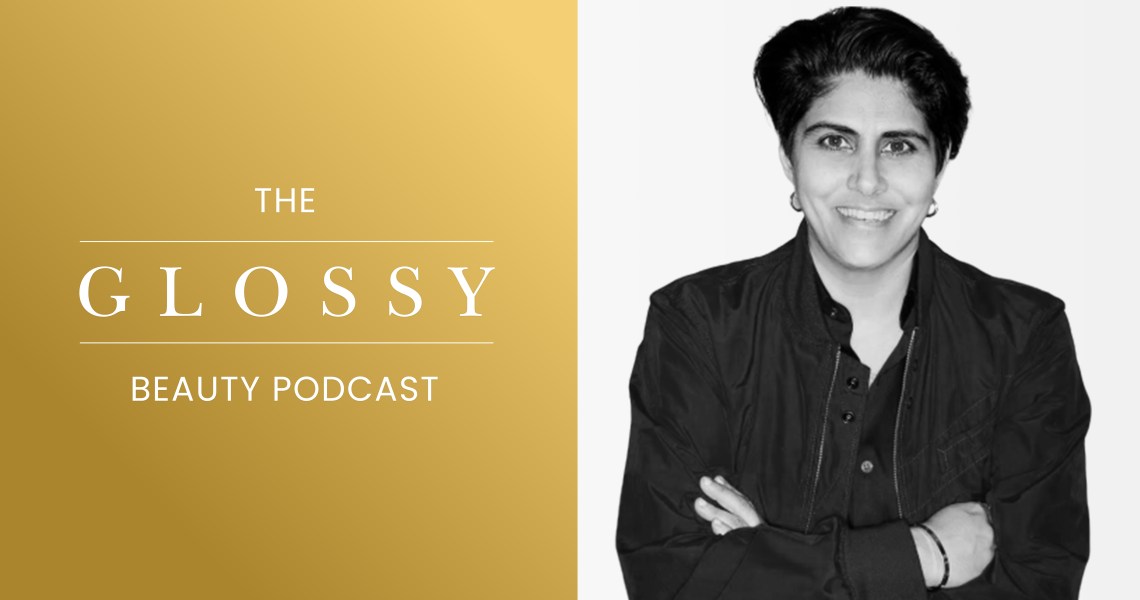Subscribe: iTunes | Stitcher | Google Play | Spotify
When Moj Mahdara took the role as Beautycon CEO, she wasn’t particularly interested in beauty.
“I always really loved beautiful things — magazines, photography, fashion — but I certainly wouldn’t be caught dead in a store like Bergdorf or Barneys, I didn’t necessarily think they were for me,” said Mahdara. “I don’t wear makeup. I don’t wear women’s clothing. So I didn’t necessarily have a relationship to beauty, but I did have one with fandom and audiences. What attracted me to Beautycon had nothing to do with the actual product. It had everything to do with the fandom around the audience.”
In the years since, Mahdara has continued to push the boundaries of Beautycon, expanding into new markets with Beautycon POP, moving into larger venues and continuing to find ways to make the event more inclusive and community-driven.
For this week’s episode of The Glossy Beauty Podcast, beauty editor Priya Rao sat down with Mahdara days before Beautycon NYC to discuss the not-so-average Beautycon attendee, the emerging competition in the space and the plan to scale through retail. Edited highlights below.
Creating a welcoming space for everyone
“I don’t think there is an average Beautycon goer at this point. We are so focused on mixing up this audience. You will definitely see a lot of Upper East Side moms there this year — that I know, because I’ve gotten a lot of email requests from people I never would have guessed would be so interested. What’s cool about beauty right now is how inclusionary it is. There’s your fair share of screaming teenagers, a lot of aspiring makeup artists, aspiring talent, beauty enthusiasts, a growing population of young men looking to be in the good company of amazing people, and a lot of people who are really living their life through the lens of not conforming to gender and just there to celebrate themselves. It’s a very wide breadth of people who attend, and we’ve really focused on making the festival welcoming to everyone.”
Embracing emerging competition
“We’re super flattered that QVC and Sephora are inspired by what we’re doing. We always help them when they call us — a lot of people have a hard time ticketing or programming. If you were at early Beautycon, we killed ourselves to develop the brand-talent partnerships, and the formula is a super unique one. There’s something totally chaotic and disorganized about it, but it works for the DNA of who we are. It’s very hard to replicate that. It’s similar to everyone who says, ‘I want to be the new Supreme.’ That’s great, and I wish them all well. I think all ships rise with the tide. I think Sephora should really check in with themselves about authenticity and community building, and I’m sure they will.”
Scaling through e-commerce
“Beautycon POP is the best way for us to take everything good about the DNA of the festival and put it into a pop-up experience. What’s weird about us is that people are buying a ticket to then go shopping, and everything they’re buying from us, they could buy somewhere else. We don’t have anything exclusive. What we have is an exclusive, controlled climate and environment that people want to be in as part of a community. So when you think about that through the lens of the reinvention of retail — what big box is going through, what big commercial real estate is now going through — we have the opportunity to take the Instagrammable museum of beauty, with a programmed store. It allows us to do a couple of things: We get to partner with our large real estate partners domestically and internationally, we can build out social moments, and we can build out stores. What’s cool about these stores is that they’re programmed with the cult classics from legacy brands but also the up-and-coming direct-to-consumer brands. Experiential retail and e-commerce is how we scale.”
Sign up for our new Glossy Beauty and Wellness Briefing, a weekly newsletter coming in April that will provide deep-dive analyses, emerging trends and insider insights in the growing beauty and wellness industries.




